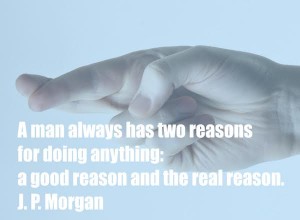Manage Expectations Before They Bite You In The Ass
You don't have to take on clients you don't like. Life is too short for that.

Keith Lee
Over the weekend, I was on Twitter, chatting back and forth with some lawyers about my review of Deep Work and its concepts. We were talking about how the attorney-client relationship works from the attorney’s perspective, painting with a broad brush.
Out of the blue, someone interjected into our conversation as is apt to happen on Twitter. Who she was isn’t important. She was not a lawyer. But she hired lawyers. She was a client. She was there to tell us about her experience and how we were wrong.

Legal AI: 3 Steps Law Firms Should Take Now
Yet we weren’t talking about things from the client’s perspective. Nor were we talking about her specific situation. This was obvious to anyone who is able to consider things from someone’s else’s perspective.
Not in the mood for dealing with the opinion of someone whose perspective and experience was irrelevant to our conversation, I told her that this wasn’t the time for the viewpoint of a “such a special snowflake.”
HOW DARE I!?!?
She didn’t take being referred to as a special snowflake very well. She was flabbergasted that I spoke to her in such a manner. She was a FAN. She was a reader and subscriber. She didn’t know I was such an asshole!
Sponsored

Is The Future Of Law Distributed? Lessons From The Tech Adoption Curve

Legal AI: 3 Steps Law Firms Should Take Now

The Business Case For AI At Your Law Firm


The Business Case For AI At Your Law Firm

I linked her to this post from 2014, Special Snowflake Syndrome Trigger Warning: I’m A Jerk, and told her “bye.” I have better things to do than interact with self-absorbed people on Twitter.
I put my phone away and went to play with my son. We went to the gym, a birthday party, all the usual things you do as a family on the weekend. We would have made it to Bed, Bath, & Beyond, but we didn’t have enough time.
Later that afternoon, I checked Twitter. I had dozens of notifications from the girl in question. She had gone on a tirade against me after I had told her bye:
What the hell did I know? Lawyers are whores. That’s not how you treat clients. She was Important. She was a Big Deal. I had no clue what I was talking about. I didn’t understand anything. I was an moron. My practice was crap. I hated my clients. I had lost her as a reader! She was done with reading anything I write. Etc.
I shook my head, laughed, then cleared my notifications and went about the rest of my day.
Sponsored

Navigating Financial Success by Avoiding Common Pitfalls and Maximizing Firm Performance

Early Adopters Of Legal AI Gaining Competitive Edge In Marketplace
The following morning, my Associate’s Mind post on Deep Work was sent out to email subscribers (after a post goes up, it’s sent to email subscribers the following day at 5 a.m.). When I checked my email that morning, there was a reply from the girl in question:
Unsubscribe asshole!
No problem.
What You Are Owed
I receive lots of emails, Tweets, and phone calls about things I’ve written. Over the years, people feel like they come to know me. That we have a relationship.
This is not the case.
If you read my writing, and get something out of it, I deeply appreciate it. I try to be helpful and useful with what I produce. If you’ve bought my book, I appreciate it as well, but that doesn’t mean I owe you anything. I wrote the book, you paid money for it. Consideration, meeting of the minds, etc., already accomplished.
You shouldn’t assume I owe you anything. I have no debt to you. Neither you to me. You’re not my client and I don’t have to treat you as such. You’re (probably) not a colleague, someone I’ve taken to lunch or referred a case to. You’re a stranger. And while I enjoy you taking the time to read what I write, it doesn’t create any obligation on my part.
I assume that most readers understand this, but some don’t. They think something more exists between us. There has been a failure of communication or understanding between us. I haven’t correctly managed their expectations.
What You Expect
Managing expectations is one of the most important aspects of being a lawyer, but is usually never addressed in a law school class. What does managing expectations have to do with being a lawyer? If you have contact and communication with clients, everything.
One of the most common bar complaints is a lack of communication between the client and the attorney. Clients expect one thing, the attorney something else. When those differing expectations conflict, there are sure to be fireworks.
Not just with communications, but outcomes, resolutions, timing, anything that happens with a case. Most clients are ill-equipped to understand the legal process. Their exposure to lawyers comes from Law and Order. No matter how convoluted or complex the case, it’s going to be wrapped up in an hour.
Many matters take years. In most people’s lives, there is little they do that takes extended periods of time. Work, hobbies, whatever, might take place over three days or three weeks. If something stretches over the course of three months, then it’s something that takes a long time. Yet three months is nothing when it comes to litigation.
As such, it is of paramount importance to manage the expectations of your client. Make sure they fully understand what is happening with their case. That they know when they’ll receive communications. What type of communications they’ll receive. Make sure your clients know exactly what you are going to provide them when you agree to representation.
Test The Waters When A New Client Walks In Your Door
In the above situation with the reader, they expected us to be buddies. My expectation was… non-existent. I didn’t know who they were. But that’s not to say that I was completely indifferent. When someone says they’re a reader, I’m inclined to give them some benefit of the doubt. But I’m also not inclined to interact with the overly sensitive.

Often, when I initially interact with someone, I needle them a bit. I’m curious as to how they’ll react. First impressions are often accurate. Outrage, indifference, confidence, all communicate something about the person’s character.
Why should it be any different for clients?
You are not the lawyer for every client. You are not required to take on anything that comes across your desk. There are considerations when taking on a client beyond legal competence and authoritative grasp of a practice area. Personality matters. Communication styles matter. Attitude matters.
If you’re just starting out on your own, you might have to take on whatever you can get just to pay the bills. But the longer you practice, the more established you become, the more discerning you can be when taking on new clients.
You don’t have to take on clients you don’t like. Life is too short for that.
Keith Lee practices law at Hamer Law Group, LLC in Birmingham, Alabama. He writes about professional development, the law, the universe, and everything at Associate’s Mind. He is also the author of The Marble and The Sculptor: From Law School To Law Practice (affiliate link), published by the ABA. You can reach him at keith.lee@hamerlawgroup.com or on Twitter at @associatesmind.







